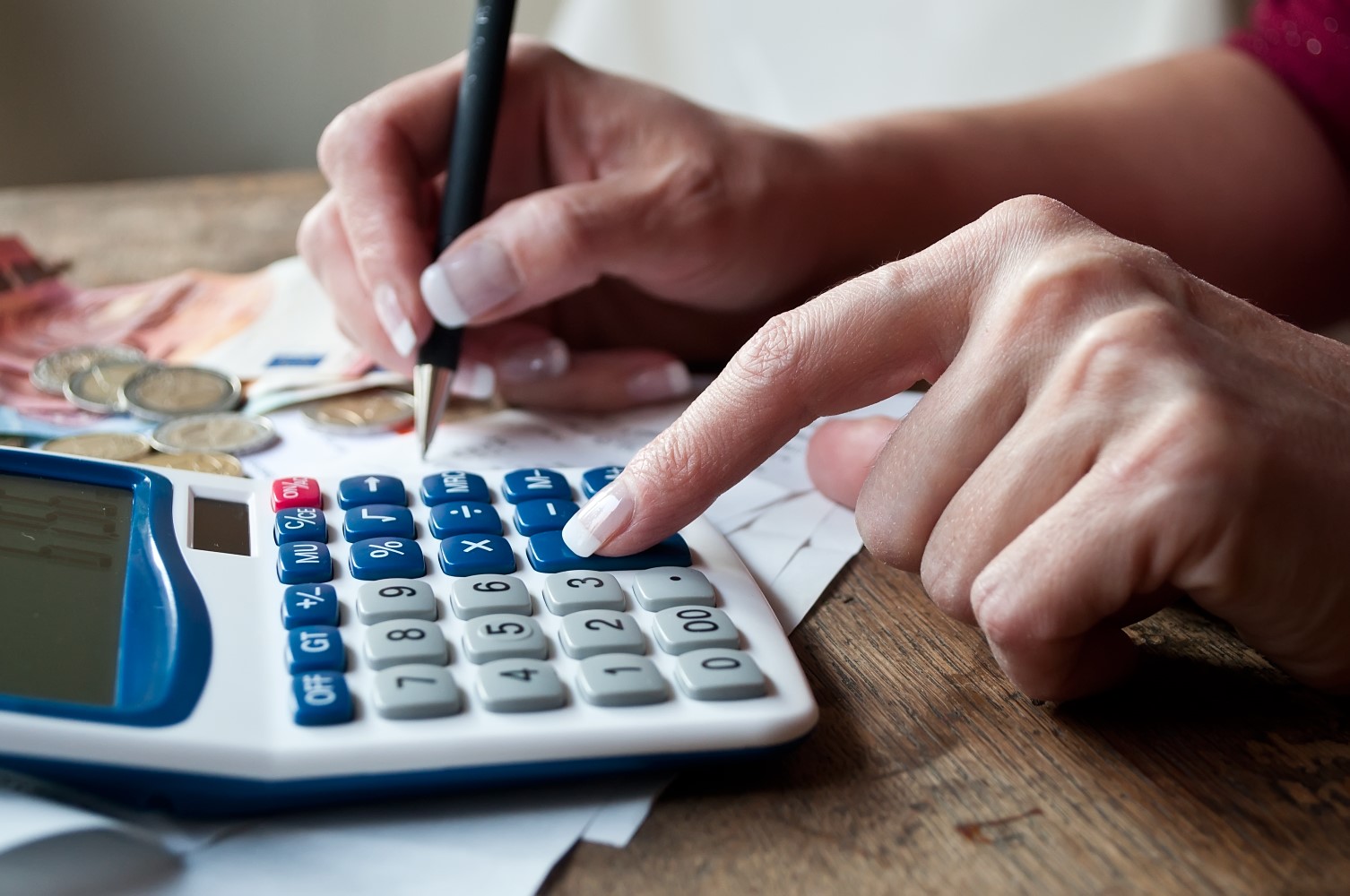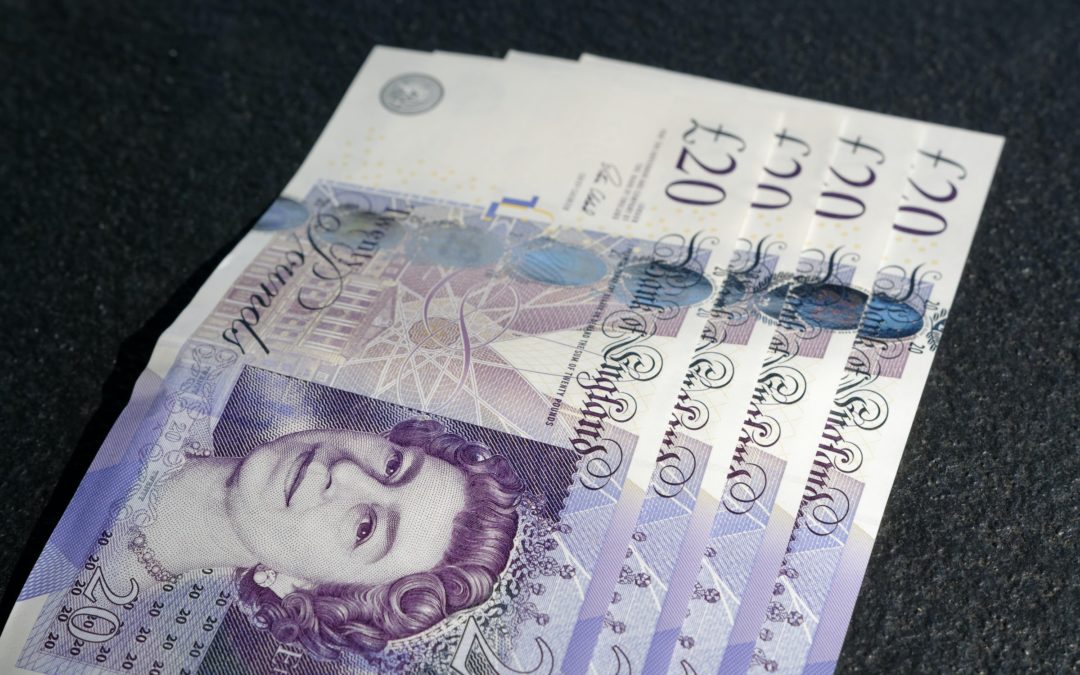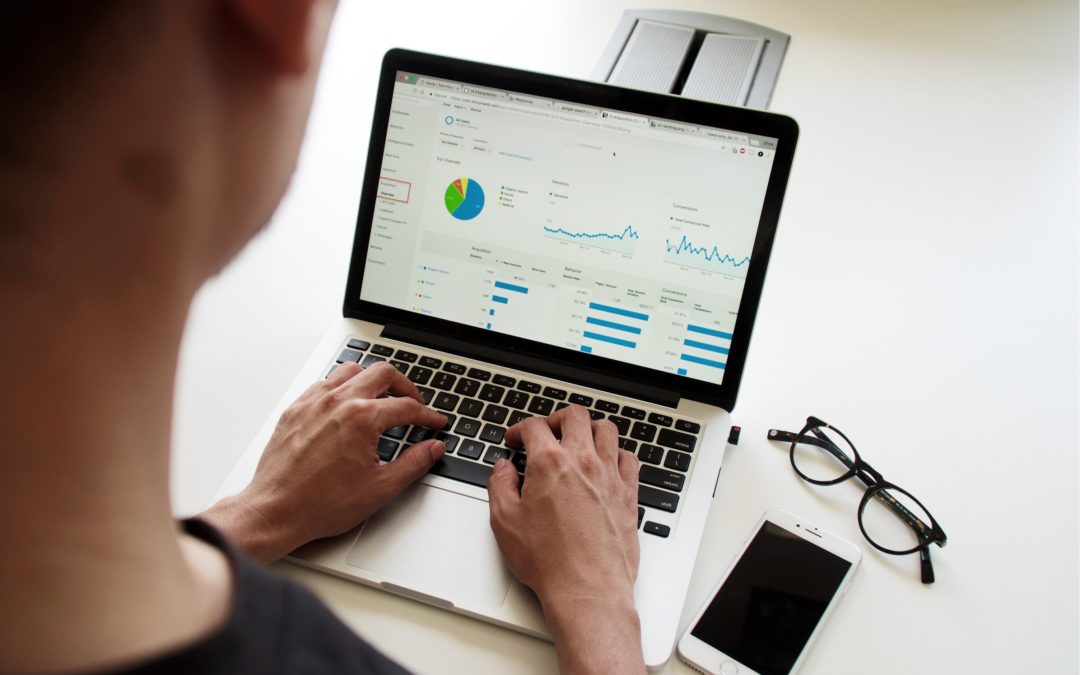
by admin | Mar 25, 2021 | Debt
This is too complicated for me!
Is it the role of someone else to help you? Do you trust believe that you can't manage your money on your own? You need to find help, but you don't know where to turn and you can't be bothered to make it a priority to go out and find a solution to the problems you are expressing.
"I can't be expected to balance my accounts on my own."
"It's OK for them. They are better educated and understand this stuff better than me."
"She can manage her money. She's more savvy than I am."
"I can't do this number stuff. I did bad at mathematics when I was at school."
"My own expenses are so different from my neighbor / workmate / brother ..."
"I could do this if only my parents had explained all this to me when I was a kid."
"It's difficult for me on my low income in this job."
These are just a few of the reasons I have heard people give for being out of control when it comes to money and their dealing poorly with money. It doesn't matter what the reason is that they give. The one that you like to use or have latched on to when explaining your difficulties around money is just an excuse. It is an excuse for pushing the responsibility away and either giving it to someone else who should have helped you or taught you or shown you how to do this "money stuff." They didn't. So get over it.
Any of these items are the warning signs of your debting behavior. When it comes to sorting out your debts and dealing with your money in a way that works, then you have to recognize that you need to let go of the excuses. Only you know your numbers. Only you can make the changes in the way that you deal with money in your life.
We all deal with money differently. None of us are the same. My experience of debt is unique to me. Yours is personal to you. If you see yourself in any one or more of the warning signs then it's time to start to adopt a few new habits. There is a quote that says:
"The definition of madness is doing the same thing again and again and expecting a different result."
I do like the truth of the words. If you are doing the same things with your money month after month - and you are still unable to pay all your bills then something needs to change this month if you are going to make some positive progress. You are what needs to change. You have created the situation you are in by the small actions and consistent behaviours you have made to reach this miserable place. The lack of control, the fear, the embarrassment you feel are all real. The good news though, is that you have all the resources you need to become debt free and the first step along the way is to recognise that the mistakes have been made.
If you are continuing to ignore the post, telephone calls from creditors, and are still experiencing the fear of a 'decline' message when you put your bank card in a shop or caf card machine, then let's start to do some things differently.
You don't want to continue your debting. We all want to deny that the problem is here, or we want to pretend that we are not affected by debt. This is natural behavior to protect ourselves, to defend against the suggestion that we are out of control financially. Going forward from here, your solutions lie in changing your debting behaviour and adopting new practices around money. Not just about earning money, though increasing your income is an important place to focus your attention. At the same time you need to recognise the need to change the way you shop, adapt the current poor saving behaviour, and to cut your costs in every single place you can.

by admin | Feb 25, 2021 | Debt
What value do you place on your own peace of mind? Practical changes here are less simple to determine and to define, but I would like to suggest that one practical step you can take is to become more conscious in your thinking about money, debt and savings. You have an income from a job and hopefully you have created one or more incomes from a side hustle or part-time business that you run alongside your main work. Being reliant on just the one income is a potential problem waiting to happen in the event of a layoff, reduced hours, or the change to the structure of your workplace.
Being consciously aware of your money in and out, taking the time to track and monitor the flow of monies around you is crucial to success in achieving the necessary changes to reaching debt freedom. Success in reducing debt is like success in every sphere of your life - it requires you to work at it diligently and with focus. So build time into your schedule to be aware of the money, to look at the bills and the statements associated with your debt, with your earning, your tax and your savings activities. You must not think that you will become debt free just by setting aside some of your income, or only by requesting the stopping of interest from your creditors, or even through the act of setting up some envelopes for separate household expenditures. No, you need to get yourself actively involved in each practical area of your money and how it functions in your day to day life.
Make time on a set day each week to look at your numbers in detail. This is your income for the past seven days and the predicted income for the next seven. Let me be as bold as to say that if you only have one job and you are paid monthly, that you should look at some other activities to create revenue for the other weeks of the month when you are not receiving money. As a private landlord, as a writer and as a networker, I love the fact that I get a monthly income from my writing, but that I get daily rental income from the rooms we rent and manage. This happens because I have more than 31 tenants, enough literally for there to be someone paying their rent each day of the month. I know there really is some money coming in every day and this gives me great confidence in planning my finances.
But it was not always like this and I hold a clear picture of how difficult it was to climb out of debt myself. With our networking business we also get a monthly bonus as well as a weekly payment for activity. When I had a job with a monthly salary I got paid one day a month and felt like I was holding my breath for the other thirty days and dreading a large bill coming in.
When will you look at your diary and set aside that time to focus on your money flow?
* Can you get a simple filing system ready for the paper bills and some online tracking notes or software to record the movement of your money?
* Do you need to clear anything from your diary that is costing you time and money and not bringing a return worth having?
* Can you make enquiries about a part-time job that brings in additional money?
* What business opportunities can you explore locally or online to create another income stream?
Make an appointment with yourself to sit down and look at your diary, at each of your bank and savings accounts and at your thoughtfully filed debt paperwork.
Create new results by thinking in a different way about these important aspects of your life and see yourself getting closely involved in your journey to debt freedom.

by admin | Jan 28, 2021 | Debt
Debt can do terrible things to your self-esteem, to your sense of purpose about what you can and should do. How you mentally and emotionally approach the debt you have is something you need to be careful about. I know that when I was at my lowest emotional state I had let my debts get the better of me. I was making the false assumption that I was my debts and that my debts were me, that I was not separate from them. Debts are just money recorded in a certain way. No more than this. But in my head I had resorted to 'stinking thinking' and was hurting myself and those around me by my terrible and destructive attitude.
For a couple of years this was plain to see for anyone who was foolish enough to talk with me. All they got for their support and gentle encouragement was an ear bashing about the unfairness of life. How low I sank while my focus was on a personal pity-party! But this is why I can say nowadays that you must take the time to see quite how much you already have in your life that is good and positive. Put your focus on whatever gives you real insight into who you are and what is precious and special and important for you.
You have people in your life who are quite capable of telling you how off-track you have been, if you will just let them. Such negative influence does you no good and you can get rid of these influences completely, or begin to limit the time you send in such company through being aware that your diary is your own. Don't let your debt anxiety and money worry overload get in the way of you maintaining and nurturing those relationships with your friends.
Take a moment right now to acknowledge what you have got. This can be something that you write down as a list or can be a process that you simply think through, picturing in your mind all the good that you already have around you. I believe the actual process of writing this down is more powerful than simply thinking it through, because you involve several more sense if you are having to think, to feel, to touch and to see what you write out.
Take a walk around your home and see what you have in your space. Pick up objects that have real significance to you. This could be a photo of an occasion, a book that helped you, a film which moved you, a toy from childhood, or perhaps a piece of furniture with real memories. Count your blessings and realize how much you have going for you. Be grateful for what you have and do not be surprised for the additional good that makes its way into your life. Let go of the stupid and pointless Pity Party. Just be you.

by admin | Dec 31, 2020 | Debt
Your website developer has issued you with an invoice for their work. Your book-keeper has sent you an email telling you the amount that you owe for the work she has done to get your accounts in order to get you to a place where because of her work you will have an accurate figure for your likely tax bill this year. Your landlord has sent you a reminder of your rent payment date, along with a letter that provides the details of her switch to a new business bank account.
You figure that you can send just half of the agreed figure to your web developer. You delay the money to your book-keeper another week and claim to have been too busy to make the payment. You don't pay the rent until the landlord chases you with a polite SMS message asking when you paid the rent and tells you she is trying to match your credit against others she has in her account this week. You reply with a message that you didn't get the new bank details and will send straightaway.
With this attitude you've lost the confidence of your website supporter and also of the person you really need to help keep your tax bill down. You've tricked your landlord out of prompt payment for your accommodation and you think you've done yourself a favour. But now it's only three weeks until the next months rent is due. You've only fooled yourself.
Paying for your Bank Account.
You pay a monthly amount of $10 or $20 to your bank and you allow them to take this from your account in exchange for points that are supposed to add up to something exciting like a discount on shopping at stores you don't frequently use, or that gives you reduced entry tickets to a theme park you will never visit. You do this, you allow them to charge for such a "privilege" account, but at the same time you have debts that are greater than the amount of $120 or $240 you are handing over each year.
Similar to the bank account, you might have a membership of a VIP Dining Card scheme that you pay a monthly fee for, and yet you either don't use the card enough for it to be a worthwhile membership or you go out to such meals and sit there sweating at the prospect of the bill after the meal being more than you know you should be spending. If you are uncomfortable then stop kidding yourself that this is a real or relevant thing in your life. Get your money in order and enjoy a meal as a reward for sorting things out.
It's not the 1st of the month again, is it?
You open your online banking account secretly hoping that there is $1,000 in your account and are disappointed or even angry when you see that you have just $180 available now that the water, electric and gas monies have been taken out, along with the grocery store money and the petrol from the weekend. You are a week from getting your next wage credit to your account and you know you will struggle to get through these next days. The chemist will need to be paid $37 for your prescription drugs today. Your car really does need two new front tires at $60 each tire, and the weather is not good. There is a $29 school meal invoice to be paid. You complain that life is not fair to you! Everyone else has it so much easier than you!
Get this into your head. It is irrelevant where other people are with their money. It is pointless thinking about anything other than what you can start to do differently or better around the way that you deal with your money.
Start to pay something against each bill that you receive. That you cannot clear the bill does not matter. Pay something. This is not about protecting your credit rating which is irrelevant right now. What you have to do is get into the habit of paying something towards what you owe.
The action of making the payment gets you closer to the psychological place you need to be in to get rid of your debts.

by admin | Dec 3, 2020 | Debt
In my first full-time job I used the pages of a Filofax as a diary and organising tool which came with lots of handy sheets to track money in and out. Nowadays, all types of journals and day planners exist to support you in monitoring to tracking your spending. Many of these can be bought cheaply at supermarkets as well as stationery stores, and the journal will often have a pocket in the back for you to keep tickets and receipts. Online software and apps for your phone make the ability to see pictures of your spending very easy indeed. You can just as easily insert spending items into your phone app and build up the spending pattern during the day, seeing it on a large screen when you get back to your laptop or PC. If you are visually motivated these tools will be a real help. If you are tactile in your approach then pen and paper will be what works for you. The key thing is to find a process that is easy for you because you enjoy it. If it's complicated you won't be giving yourself any incentive.
A pocket notebook that is easy to fit in your coat, or an envelope can both fulfil the role of place to store your receipts. There is no need for you to spend any real money to capture the record of where you spend and what you buy with your money. The key is to make sure every expenditure gets logged somehow. If you buy with a debit card at the shop counter or the service station you will naturally be given a receipt. With simple cash transactions at the hardware store or in the green grocer shop you will either have to ask for a receipt or finish the purchase, reach for your notebook and write down what you just bought and the cost of it.
If you're reading this at lunchtime you can still start to log your spending until you go to bed tonight. Tomorrow you can do a full day of recording the way that money is going through your hands.
The rules are simple:
1. Record each expenditure. Don't miss one.
2. Write down the detail as soon as you can after spending the money.
3. Log the exact amount, to the actual penny.
It's really simple to do this. From now on, you'll not put $50 in your pocket at the start of the day and then wonder at night why you have just $7.37 left over in change. You will know where the money went and what you spent it on.
Maintaining the daily record and learning from the pattern of your spending in this way, puts you back in control, not just of your money but of your life. From knowing the numbers behind your spending you then become conscious of your choices over what you buy. Only once you are fully aware of this can you start to make more informed decisions.

by Nick Sturgeon | Oct 17, 2019 | Debt
Opening a letter from a utility company to find a higher bill than you are expecting can have a dreadful impact on you. It might literally make your throat go dry, cause your heart to race, or make you feel weak at the knees for fear of being unable to pay it.
Receiving a medical bill or an insurance charge for something that you needed, but which you put onto a credit payment, or long term finance package, can really hurt you emotionally. It can have such a negative impact on you as to remove any of the originally intended good that came from the procedure, the treatment or the remedial work that was so necessary at the time of purchase.
Hiding a debt from a partner will cause you to behave out of character, to lie or to pretend that things are well, while all the time the dark presence of the debt is draining you of energy, of vitality and of being your real self. Eventually they will see through you and get a glimpse of the burden you are trying to carry on your own. Don’t hide your debt. Recognise it, calculate the value of it, and above all, learn to talk about it.
Each letter, each unidentified call to your mobile phone, is another source of anxiety and of fear taking a grip on you. The shame and pain of carrying secret debt can manifest into high blood pressure, anxiety, depression and even thoughts of a suicidal nature. It can rob you of sleep, of good health, and of personal happiness for the sake of carrying with you the worries, the fears and the torment of being out of control with our finances. Being in debt can be painful and unpleasant.
It is also completely unnecessary. Yes, you don’t need to live like this or to put up with ongoing debt. You have the chance to fight back and to begin - slowly and steadily at first - to take back control of your money matters.
Recovery from debt requires effort and patience, but it also needs your commitment to the fight. Every day you have a choice about whether you take on new debt or focus on clearing the debts you have. It takes courage too. You cannot get rid of a problem until you have first acknowledged and accepted your role in letting it happen.
So let’s accept where you are with the debt, and begin the process of tackling it. How do you do this best? By dealing with the problem one Pound, or Euro or Dollar at a time.





